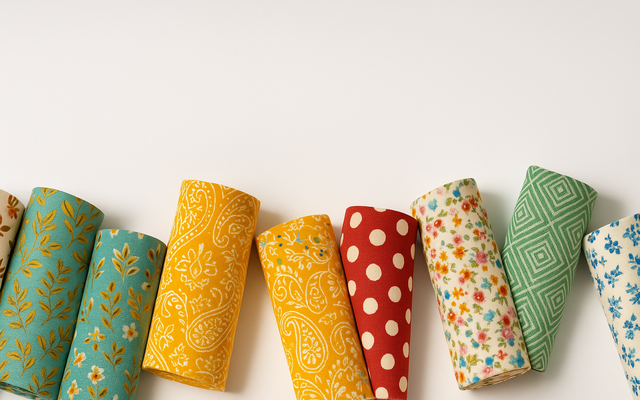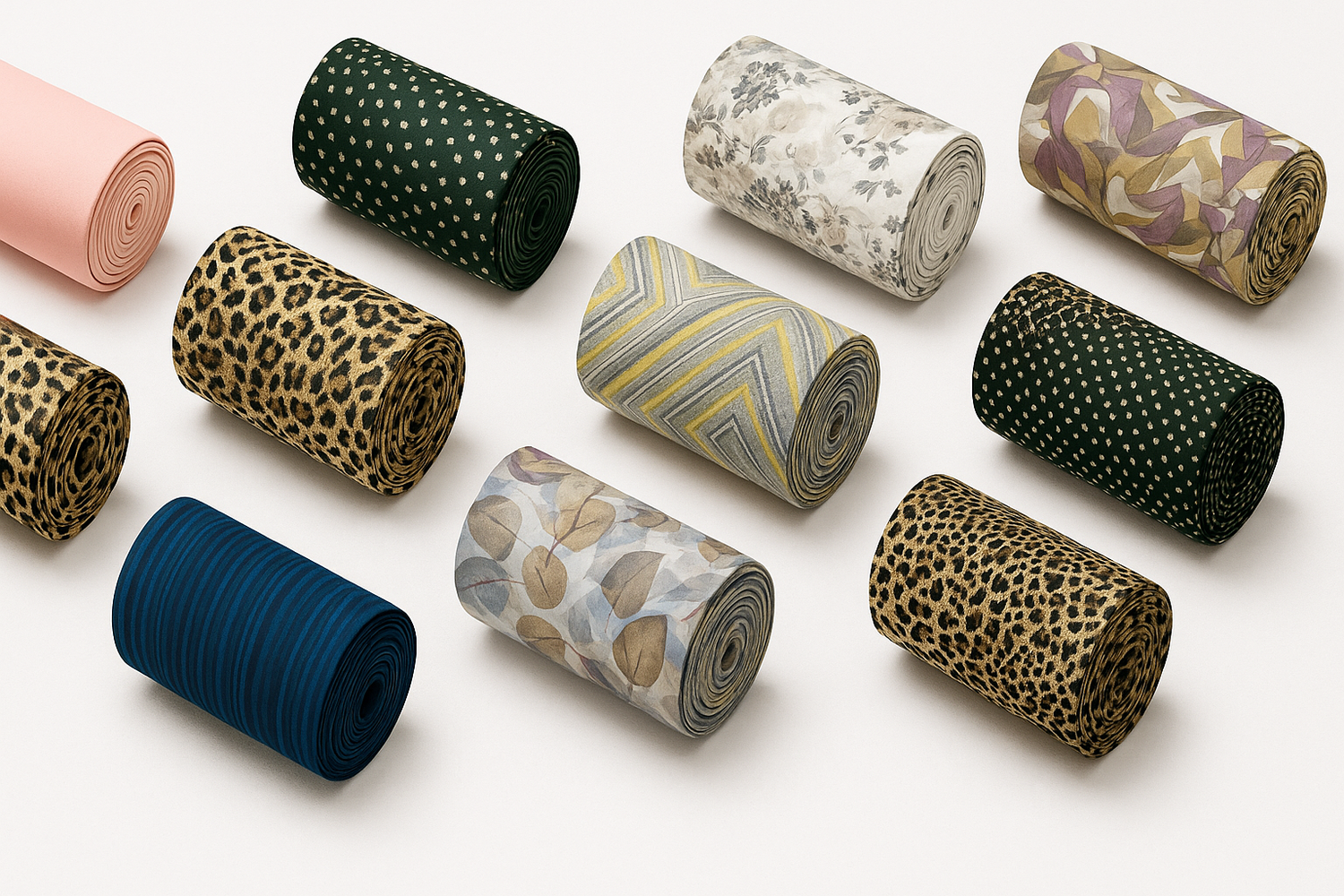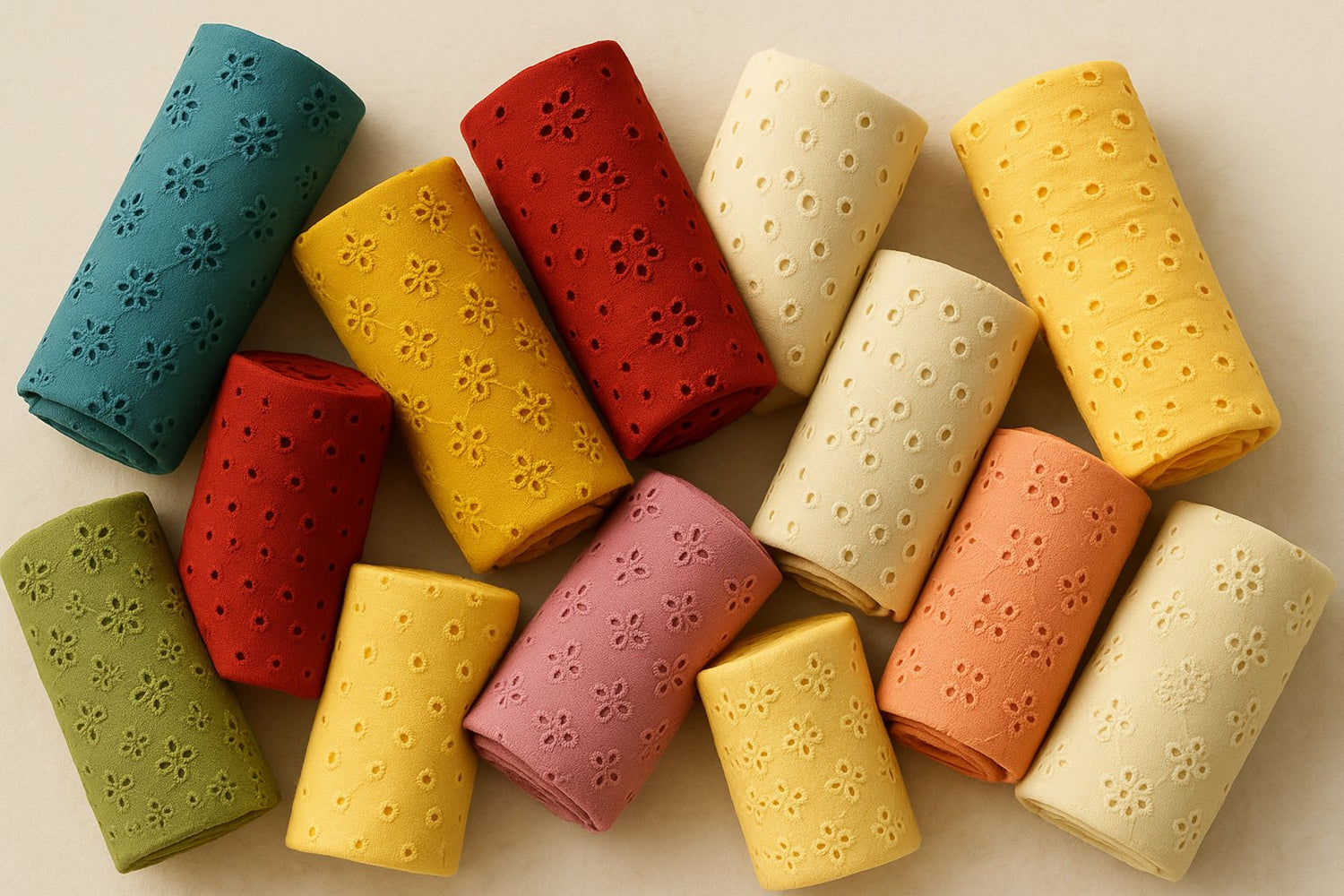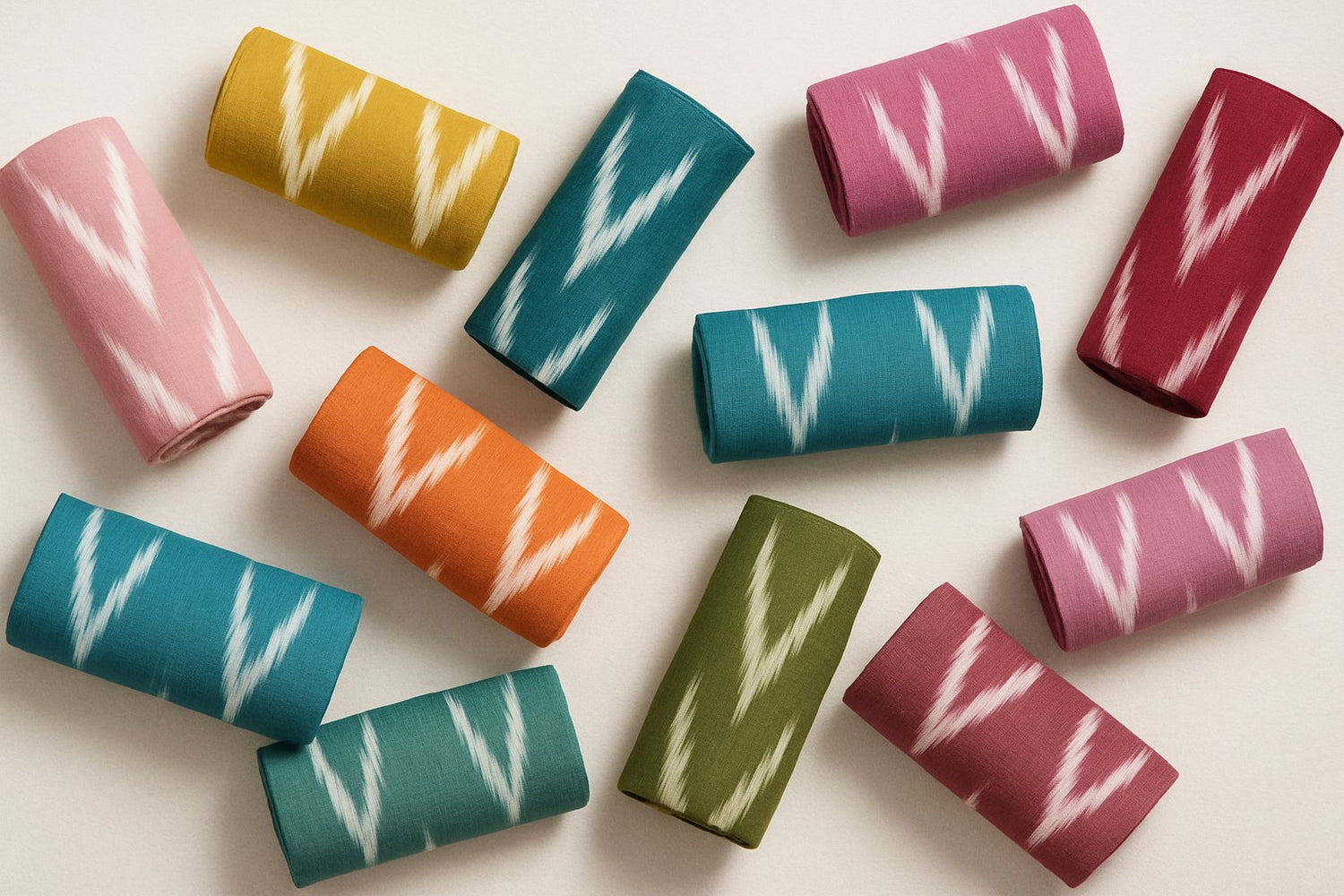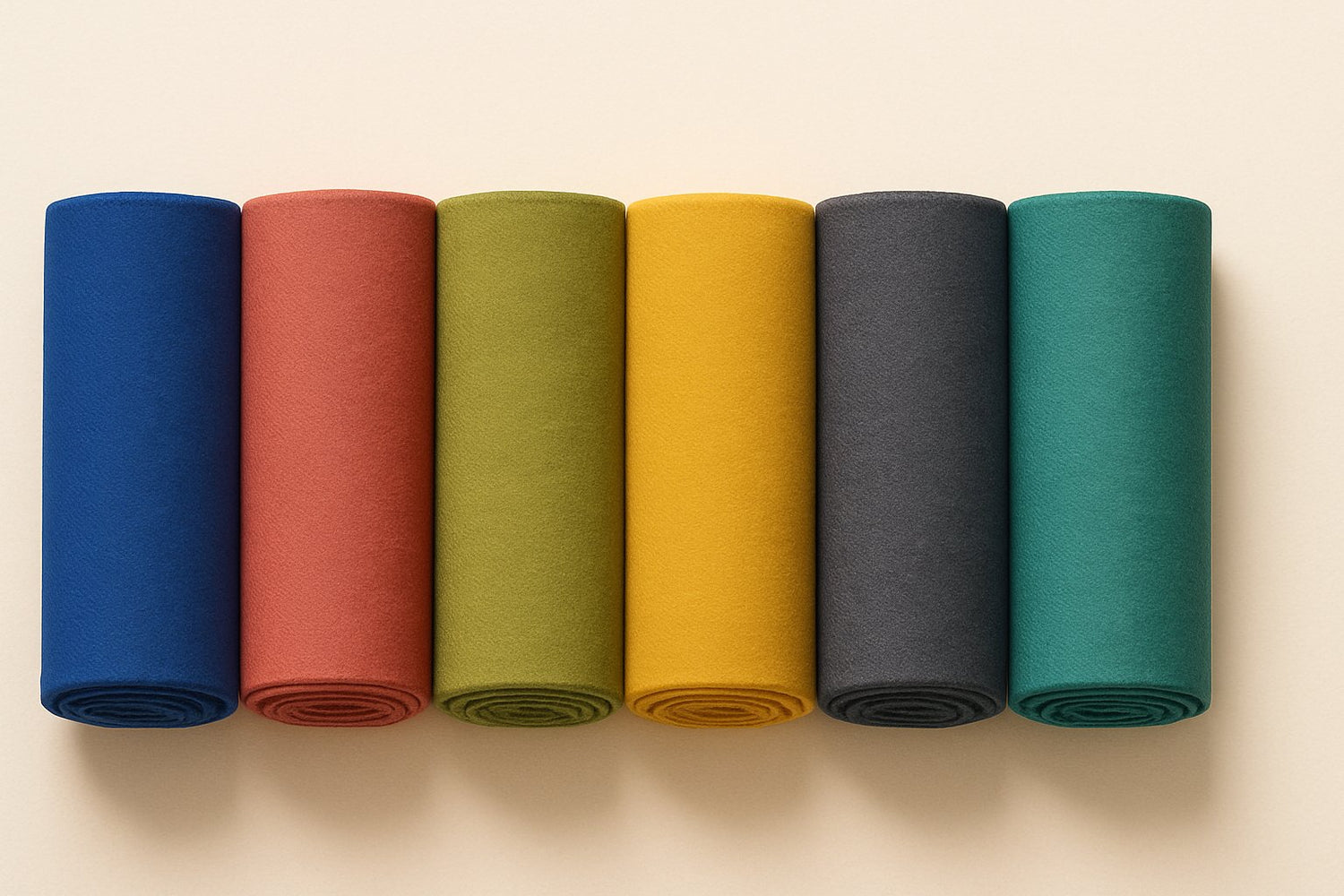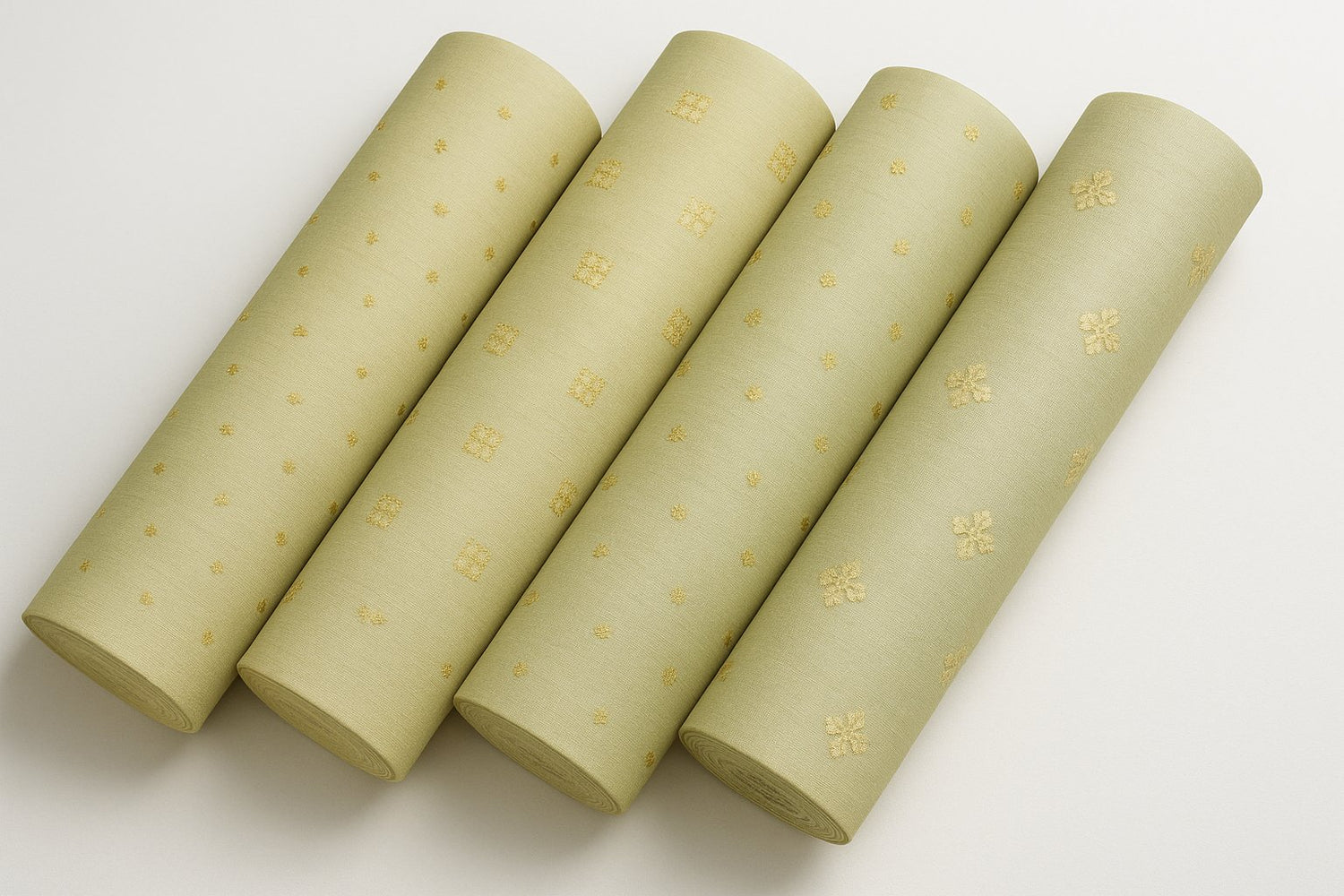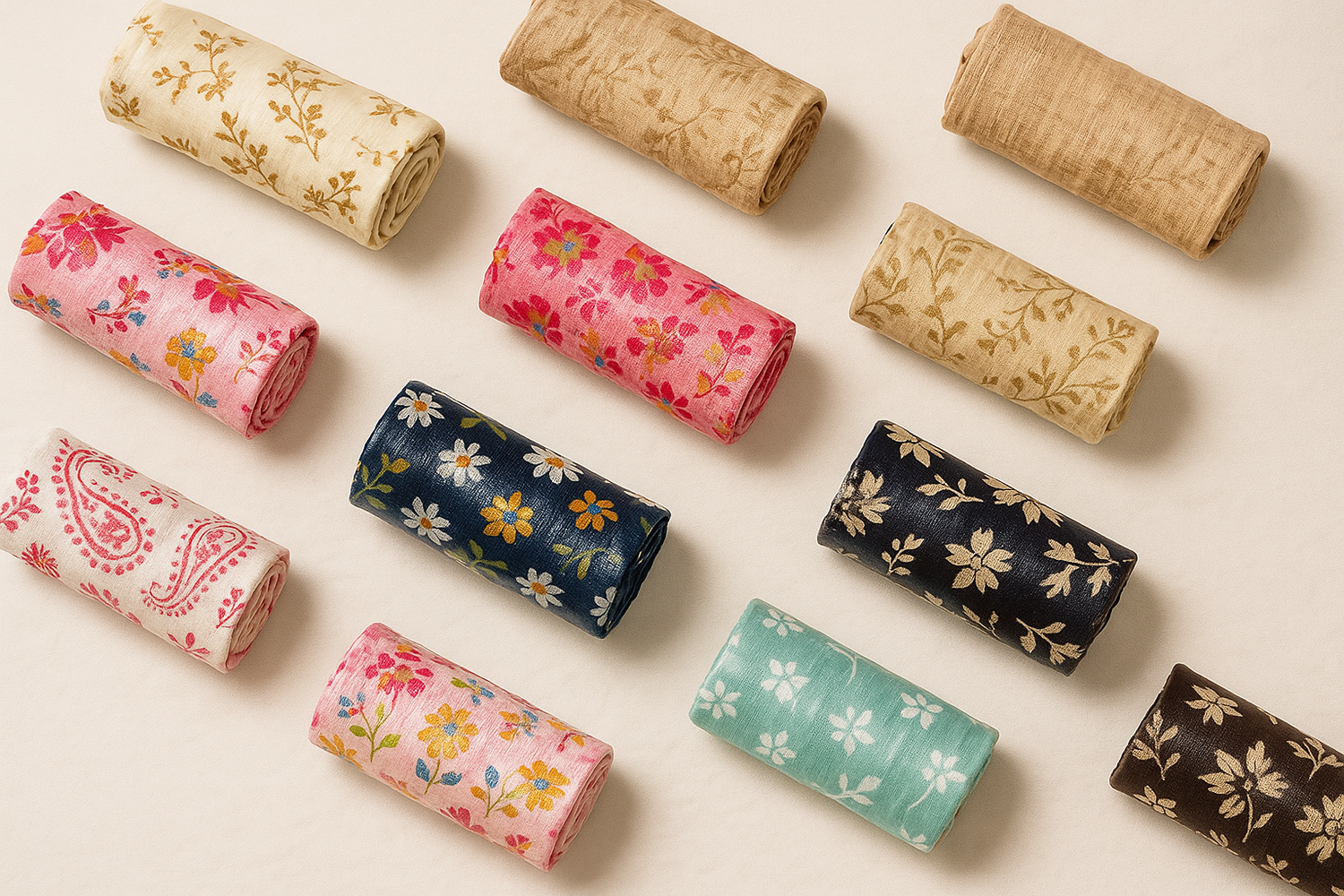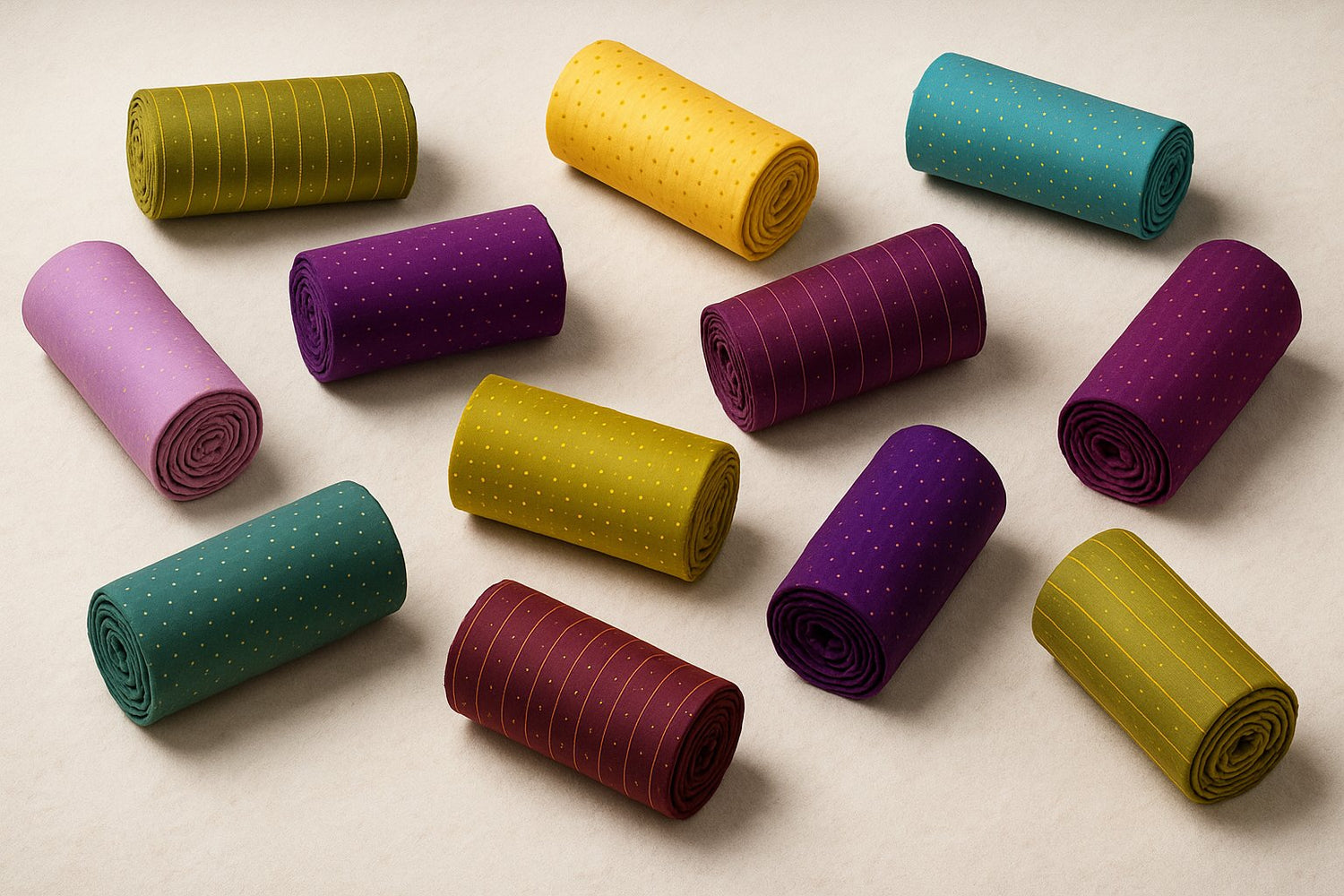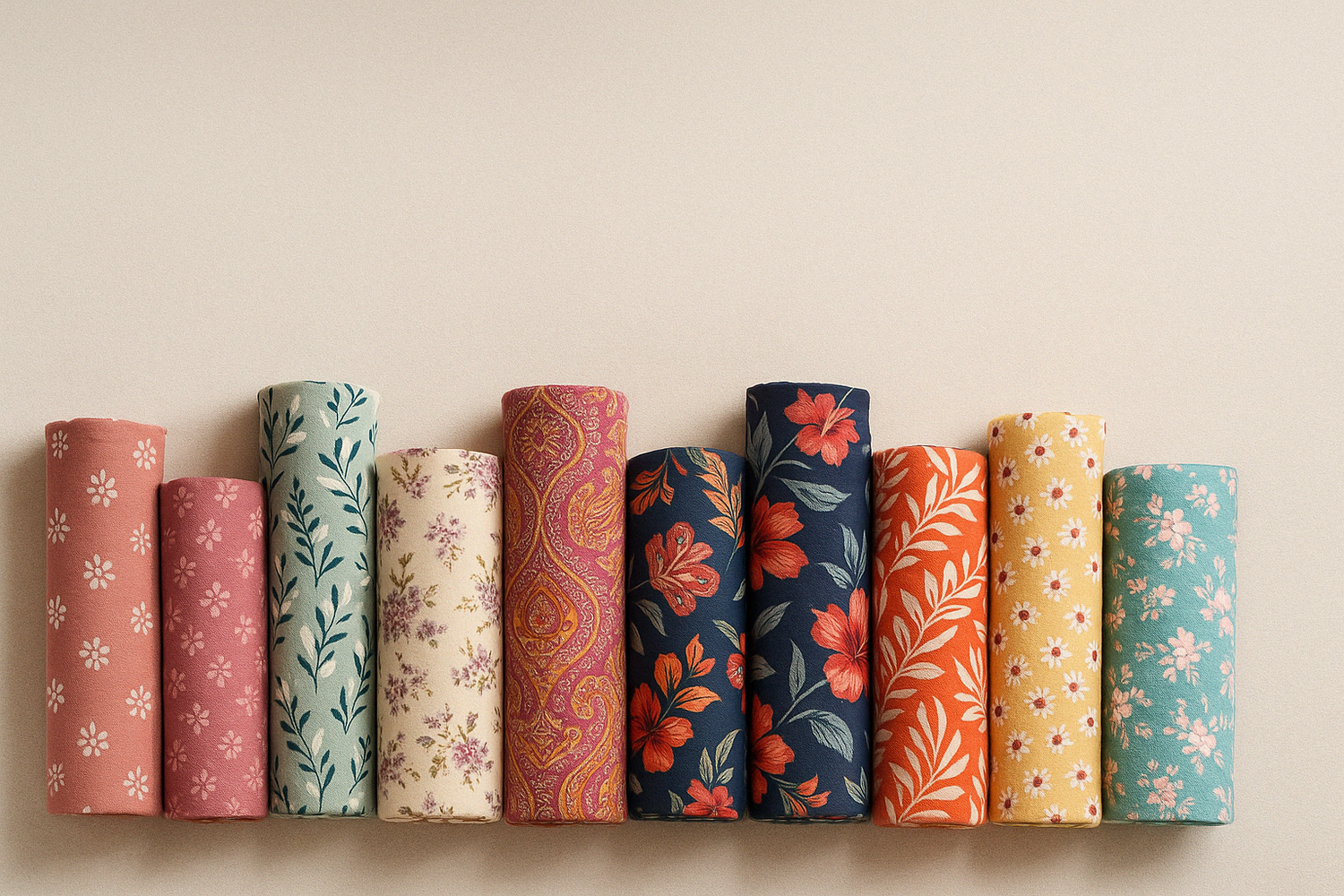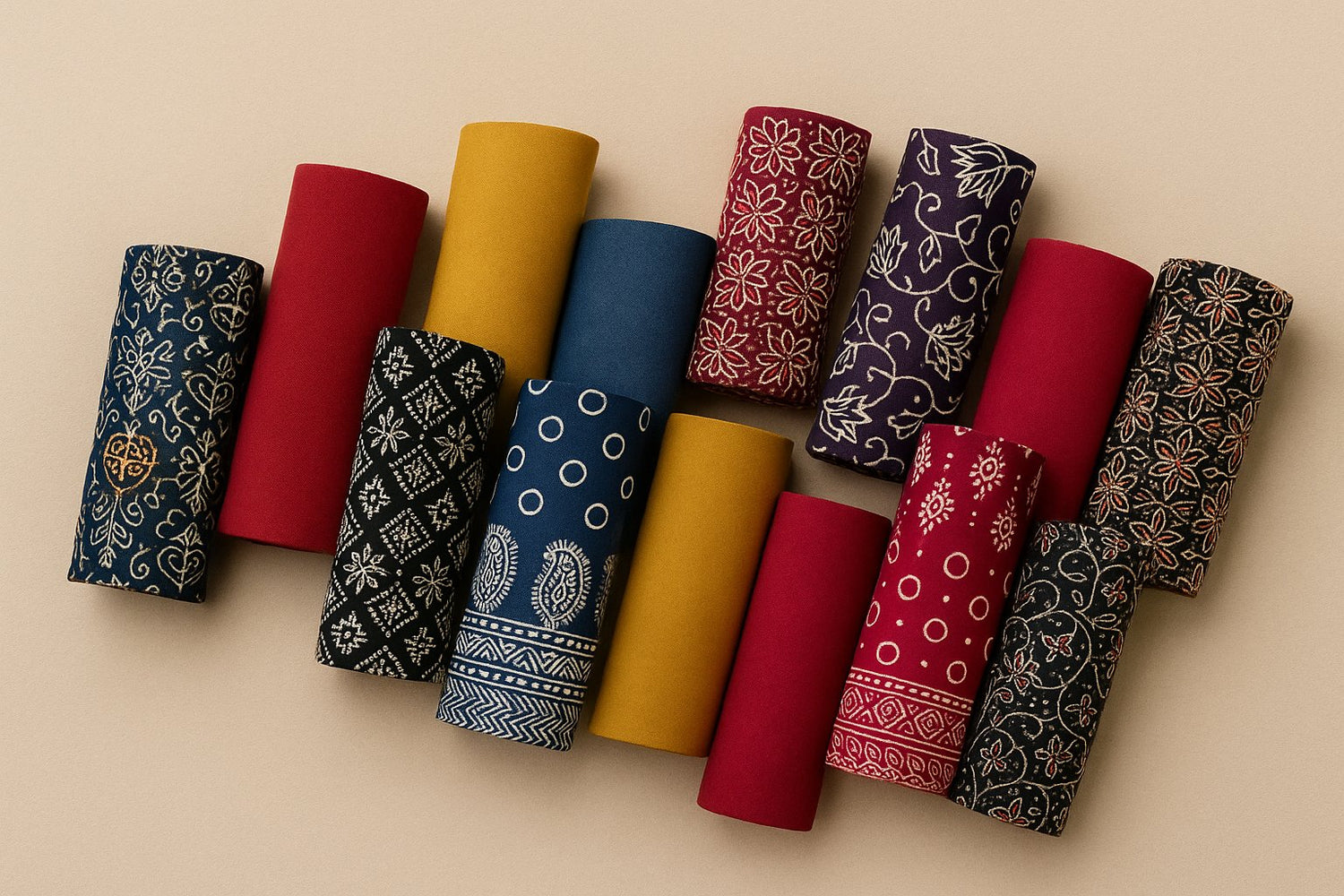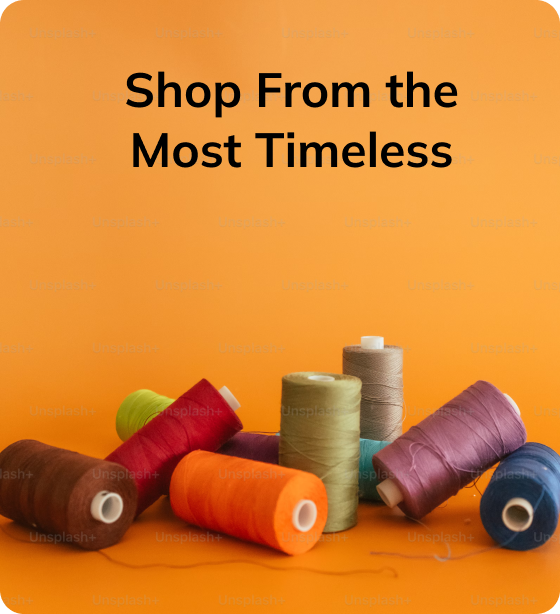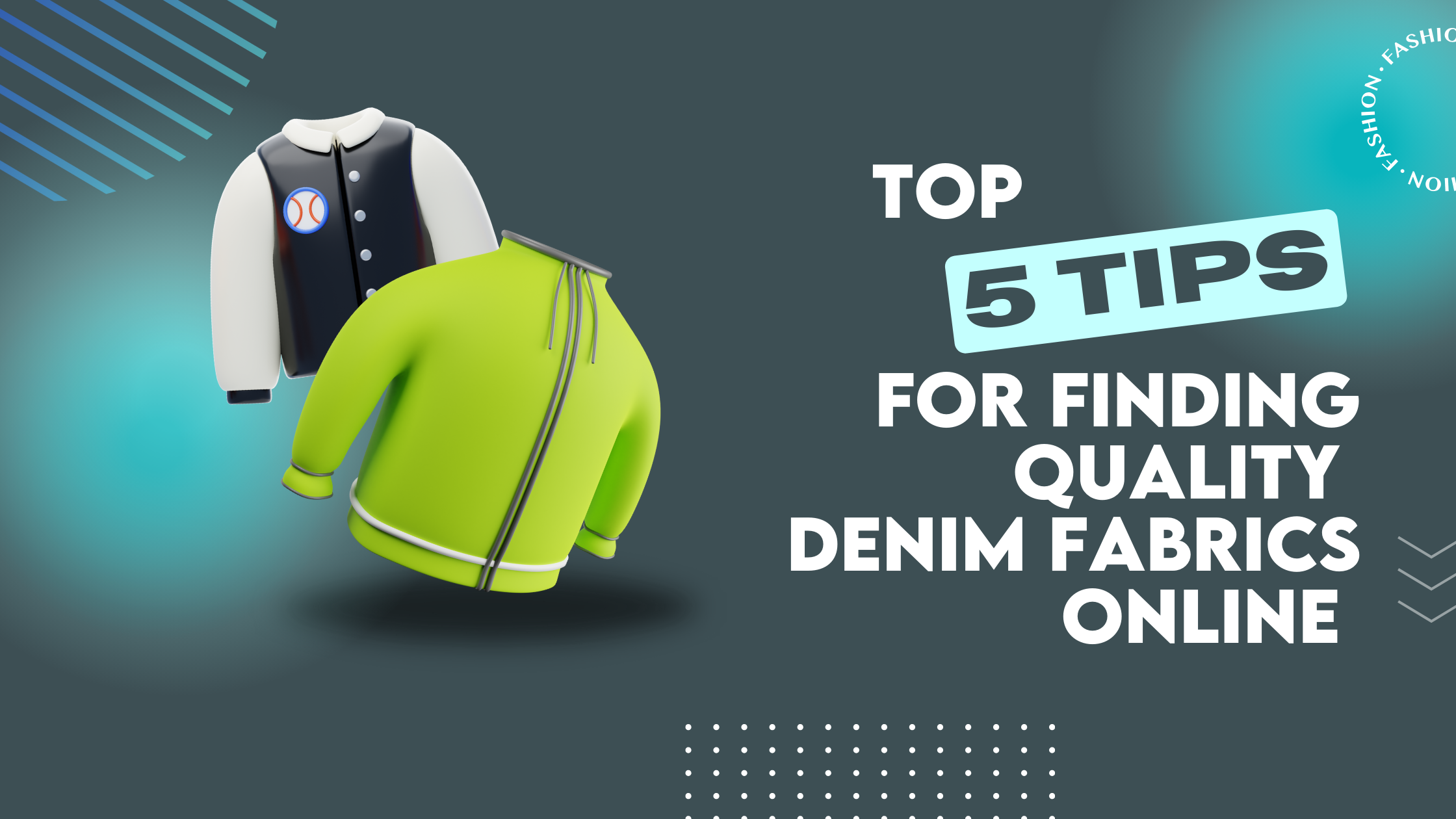Known worldwide for their durability, versatility, and timelessness, denim fabrics have become a staple in fashion and crafting. As the demand for quality denim fabric continues to rise, online marketplaces offer a variety of platforms to explore an extensive array of options just a few clicks away.
The accessibility of denim fabric online, in India provides buyers with a broader selection that may not be available at local stores, allowing them to screen through unique variations and styles and alter them to suit their specific needs and creative endeavors. Whether you're seeking non-stretch denim, Japanese denim, or sustainable options, the online realm opens up a world of possibilities for those in search of premium denim fabric.
Here's a rundown of some of the things you should consider before selecting denim fabric for your next project.
1. Research Different Online Stores
When looking for quality denim fabric online, it's essential to explore various options to find the perfect match for your project. Here are some key online stores you can research for a diverse selection of denim fabrics:
By thoroughly researching different online stores, you can gain insight into the unique offerings of each retailer and make an informed decision based on your specific requirements and preferences.
By exploring different online stores like Studio LCX, you can compare the quality and prices of denim fabric available, ensuring that you make an informed decision when purchasing online. So be sure to check out what they have to offer in terms of premium quality denim fabric.
2. Types and Variations of Denim Fabric
When shopping for denim fabric online, it's crucial to understand the different types and variations available to make an informed decision. Here are some key types of denim fabric to consider:
Non-stretch Denim
Known for its durability and classic denim look, non-stretch denim is ideal for sturdy jeans, jackets, and skirts.

Stretch Denim
This type of denim contains spandex or Lycra, providing flexibility and comfort for garments that require ease of movement.

Bull Denim
With a heavier weight and tighter weave, bull denim is often used for upholstery, bags, and aprons due to its robust nature.

Deadstock Denim
Produced from excess fabric that was never used in production, deadstock denim offers a sustainable option for eco-conscious shoppers.

Japanese Denim
Renowned for its superior quality and craftsmanship, Japanese denim is favored for its unique textures and dyeing techniques.

Artisanal Denim
Handcrafted by skilled artisans, artisanal denim showcases intricate detailing and personalized touches for a truly individualized garment.

Each type of denim fabric has its own distinct characteristics and applications, so understanding these differences will help you choose the most suitable option for your project.
3. Cotton VS. Denim: The never-ending rivalry
Is Denim Made of 100% Cotton?
When it comes to denim fabric, the primary material used is cotton. Cotton denim is a popular choice due to its durability, breathability, and comfort. However, some denim blends may include other fibers such as polyester or elastane to enhance certain properties like stretch or moisture-wicking capabilities.
Comparing Cotton and Denim
While cotton and denim are closely related, they are not the same. Cotton refers to the natural fiber derived from the cotton plant, whereas denim is a sturdy cotton twill fabric, typically woven with a diagonal ribbing pattern. Cotton itself is a versatile material used in various clothing items, while denim is specifically known for its rugged and durable qualities.
Strength Comparison: Denim vs. Cotton
Denim is often perceived as being stronger than regular cotton due to its tightly woven construction and twill weave. The diagonal ribbing of denim helps reinforce the fabric and make it more resistant to wear and tear, making it a popular choice for jeans, jackets, and other heavy-duty garments.
4. Read Customer Reviews and Ratings
When buying denim fabric online, one of the best ways to make sure you're getting a good product is by checking out customer reviews and ratings. These reviews can give you an idea of the quality, fit, and overall satisfaction of other buyers. Here's why reading customer reviews is important and how to spot genuine feedback:
Benefits of Reading Customer Reviews
Here are some reasons why customer reviews are helpful when shopping for denim fabric:
- Assessing Quality: Reviews can clue you in on the durability, colorfastness, and overall performance of the fabric you're interested in.
- Checking Fit and Comfort: People often share their experiences with how the denim fabric feels when worn. Look for reviews that discuss comfort, stretchability, and breathability.
- Considering Appearance: Reviews may highlight the look of the denim fabric, including its color accuracy, texture, and design. This can help you decide if it matches your desired style.
- Evaluating Online Stores: Customer feedback can also give you insights into the reliability and trustworthiness of different online stores. Pay attention to comments about timely delivery, accurate product descriptions, and helpful customer service.
Guidelines for Identifying Genuine Feedback
While customer reviews are valuable, it's important to be aware of potential biases or fake reviews. Here are some tips to help you distinguish genuine feedback from unreliable ones:
- Look for Specific Details: Genuine reviews often include specific information about the product, such as its weight, texture, or how it compares to other fabrics they've used before.
- Consider Both Positive and Negative Reviews: While positive reviews can be reassuring, negative reviews can provide valuable insights into any potential drawbacks or issues with the denim fabric.
- Check Multiple Sources: Don't rely solely on a single platform or website for reviews. Look for feedback from different sources to get a well-rounded understanding of the product.
Bonus Tip (5) : Finding the Right GSM for Denim
GSM, or grams per square meter, is a measurement used to determine the weight and thickness of fabrics. When it comes to denim, the ideal GSM can vary depending on the desired application.
Conclusion
For jeans and other casual wear, a medium to heavyweight denim (around 10-14 oz) is commonly used for its durability and structure. Lighter weight denim (around 6-8 oz) is often used for shirts and lighter garments.
By using these tips, you can feel more confident when you're shopping for denim fabric online. You'll be able to find high-quality options that work well for you. Just remember to think about both how it looks and how it performs so that you end up with denim creations that you love. Happy shopping!
PS: Don't forget you can always order samples before committing to a project.


